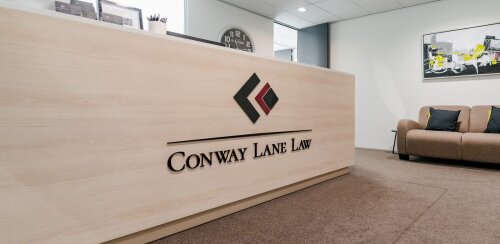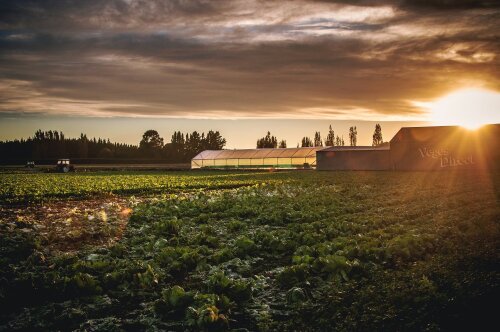Best Licensing Lawyers in Rangiora
Share your needs with us, get contacted by law firms.
Free. Takes 2 min.
List of the best lawyers in Rangiora, New Zealand
About Licensing Law in Rangiora, New Zealand
In Rangiora, licensing is governed by national legislation and enforced by local authorities. The core framework comes from the Sale and Supply of Alcohol Act 2012, which sets the types of licenses, the management requirements and how hearings are conducted. Local decisions are made by District Licensing Committees under the broader Act, with oversight from the Liquor Licensing Authority and the Department of Internal Affairs.
Typical license types include on-licenses (for bars and restaurants), off-licenses (for takeaway liquor sales), club licenses and special licenses for events. Premises must comply with conditions such as managing alcohol supply, responsible service, approved managers and age verification. The Rangiora process is implemented through the Waimakariri District Council and its District Licensing Committee, following national rules.
Local licensing decisions are guided by the Sale and Supply of Alcohol Act 2012 and its regulations, and decisions are made by District Licensing Committees in each district.
Sources: Department of Internal Affairs - Liquor Licensing, and legislation.govt.nz for the Sale and Supply of Alcohol Act 2012.
Key sources you can consult for current rules and procedures include the Department of Internal Affairs and the official Act text: DIA - Liquor Licensing and Sale and Supply of Alcohol Act 2012 (legislation.govt.nz).
Why You May Need a Lawyer
Licensing matters in Rangiora often involve precise statutory requirements and local policies. A lawyer can help you navigate complex forms, prepare strong evidence, and present your case at a District Licensing Committee (DLC) hearing. Below are real-world scenarios where legal counsel can add value:
- A new off-licence applicant in Kaiapoi or Rangiora faces neighbour objections during the DLC hearing. A solicitor can help compile impact studies, organise expert witnesses, and manage cross-examination of objectors.
- A restaurant seeks an on-license with extended hours and must show community safety measures. A lawyer can assess conditions, advise on compliance plans and represent you at hearings.
- A licensee breaches conditions and receives a compliance notice from the DIA or Police. A lawyer can negotiate remedial actions, prepare responses, and advise on potential appeals or reviews.
- A local club wants a Special Licence for a fundraising event. A solicitor can prepare the event plan, manage temporary authority applications and coordinate with the DLC on crowd and safety considerations.
- An applicant needs a temporary authority for a one-off event while a full license is in progress. Legal counsel can ensure timely submission and proper documentation to avoid delays.
- A business seeks to transfer or renew an existing licence and faces penalties or objections. A lawyer can advise on procedural steps and represent you in renewal hearings.
Local Laws Overview
The licensing framework in Rangiora is shaped by several key statutes and regulations. The central statute is the Sale and Supply of Alcohol Act 2012, which establishes license categories, the role of the DLC, and the duties of licensees. The act and its regulations set out the process for applications, objections, hearings and enforcement actions.
Alongside the main Act, the Sale and Supply of Alcohol Regulations 2013 provide detailed rules on forms, fees, and procedural requirements for licensing processes. Local councils also operate under the Local Government Act 2002 to administer council policies and district-level licensing guidance.
For authoritative texts and current amendments, consult: Sale and Supply of Alcohol Act 2012 and Sale and Supply of Alcohol Regulations 2013. Local policy context can be found through the Waimakariri District Council and related council resources: Waimakariri District Council.
District Licensing Committees consider community impact, public safety and the suitability of licence holders when making decisions under the SSAA 2012.
Notes on jurisdictional nuances:
- The Liquor Licensing Authority oversees regulatory decisions across New Zealand, with DLCs handling local hearings in Canterbury and surrounding districts.
- License conditions can require responsible service, site management plans, and restrictions on hours or activities.
- Applications and renewals are typically filed through the DIA process, with local support and guidance available from the council.
Frequently Asked Questions
What is the difference between on-licence and off-licence?
An on-licence allows customers to drink on the premises, usually at bars and restaurants. An off-licence permits sale of liquor for consumption off the premises, such as liquor stores or cafés selling take-away alcohol.
How do I apply for a liquor licence in Rangiora?
Apply via the Department of Internal Affairs portal, attach required documents, and prepare any local evidence for the DLC hearing. The council may provide local guidance on site suitability and noise controls.
What documents are usually required for a new licence?
Business details, lease or ownership documents, a detailed premises plan, a manager's licence details and a harm-minimisation plan are commonly required. Check the DIA forms for the latest list.
How much does licensing cost in Rangiora?
Costs include application fees, license fees and potential hearing costs. The exact amounts vary by license type and are published by the DIA and the council on their websites.
How long does a typical licence application take?
Processing times vary, but a standard application often spans several weeks to a few months, depending on complexity and any objections. The DIA notes that processing times are not fixed.
Do I need a lawyer to apply for a licence?
A solicitor or licensing lawyer can help prepare documentation, respond to objections, and represent you at hearings. This is especially helpful if neighbours oppose your application.
What qualifies someone as a licensed manager?
A licensed manager must meet eligibility criteria under the SSAA 2012 and hold an appropriate manager's certificate. The local DLC may require evidence of training and ongoing compliance.
What is a temporary authority and when is it used?
A temporary authority lets certain activities occur while a full licence application is processed for an event or change of ownership. It requires specific documentation and timely submission.
What is the process to renew a licence?
Renewals follow the same general process as new applications, with a focus on continued compliance and any changes to premises or management. Early renewal is often advised.
Can I object to a licence renewal or a new application?
Yes. Objections can be based on community impact, safety concerns or compliance history. Objections trigger a DLC hearing where both sides present evidence.
What happens if a licence holder breaches conditions?
Breaches can lead to compliance actions, fines, or licence reviews. The DIA and DLC may impose new conditions or suspend or cancel the licence if necessary.
Additional Resources
Useful official resources for Licensing in Rangiora include:
- Department of Internal Affairs - Liquor Licensing - Administers licensing processes, compliance, and enforcement for all of New Zealand. https://www.dia.govt.nz/Liquor-Licensing
- Sale and Supply of Alcohol Act 2012 - Official text and amendments. Legislation NZ
- Waimakariri District Council - Local licensing guidance and District Licensing Committee processes. https://www.waimakariri.govt.nz
Next Steps
- Clarify your licensing goal and license type (on-license, off-license, or event licence). Timeframe: 1-2 days.
- Check the DIA and council guidance for Rangiora to gather required documents. Timeframe: 1 week.
- Consult a licensed solicitor or attorney experienced in NZ alcohol licensing. Timeframe: 1-2 weeks to shortlist and initial consultation.
- Assemble evidence and draft your application with the help of your lawyer. Timeframe: 2-4 weeks.
- Submit the application and respond promptly to any information requests from the DLC or DIA. Timeframe: 1-3 weeks for initial processing.
- Prepare for and attend the DLC hearing with your legal counsel. Timeframe: hearing date set within weeks to months after submission, depending on capacity and objections.
Lawzana helps you find the best lawyers and law firms in Rangiora through a curated and pre-screened list of qualified legal professionals. Our platform offers rankings and detailed profiles of attorneys and law firms, allowing you to compare based on practice areas, including Licensing, experience, and client feedback.
Each profile includes a description of the firm's areas of practice, client reviews, team members and partners, year of establishment, spoken languages, office locations, contact information, social media presence, and any published articles or resources. Most firms on our platform speak English and are experienced in both local and international legal matters.
Get a quote from top-rated law firms in Rangiora, New Zealand — quickly, securely, and without unnecessary hassle.
Disclaimer:
The information provided on this page is for general informational purposes only and does not constitute legal advice. While we strive to ensure the accuracy and relevance of the content, legal information may change over time, and interpretations of the law can vary. You should always consult with a qualified legal professional for advice specific to your situation.
We disclaim all liability for actions taken or not taken based on the content of this page. If you believe any information is incorrect or outdated, please contact us, and we will review and update it where appropriate.









